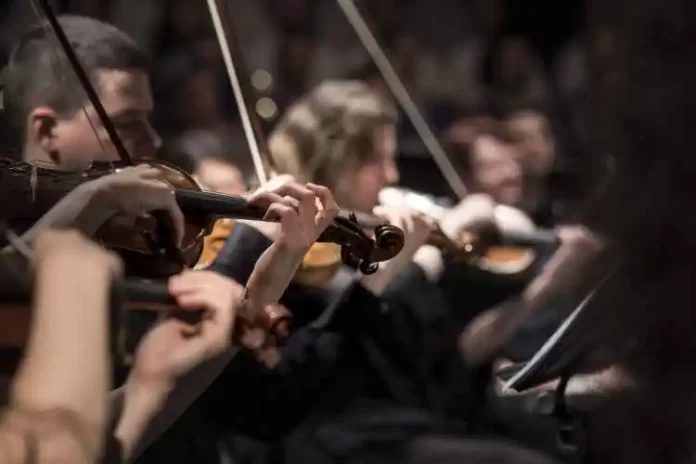Music education, spanning across cultures and centuries, has held a revered place in the annals of learning and personal development. Rooted deep within human history, music has always been a means to communicate, celebrate, and comprehend the intricacies of our existence. Recognized not just as an art form, but as an instrumental tool for cognitive and emotional growth, music education bridges the gap between raw emotion and structured expression. The multifaceted benefits of music education underscore its paramount significance, leading many to advocate passionately for its continued prominence in holistic learning. Given this, it’s no wonder that music education is heralded as vital, shaping minds and souls alike.
Cognitive Development
Music training, particularly when begun at a young age, has been linked to enhanced cognitive skills. For example, a child learning to play a musical piece must recall the notes, rhythms, and dynamics, thus strengthening memory.
When practicing a fast-paced piece, they must hone their attention to ensure each note is played correctly. Problem-solving comes into play when deciding how to overcome a particularly challenging section or figuring out the fingering for a complex passage.
Specifically, when learning to play piano chords, a student is not just memorizing a sequence of keys but understanding the relationship between those keys and how they come together to create harmony. Furthermore, research suggests that music training can enhance spatial-temporal skills. These skills refer to the ability to visualize spatial patterns and understand the relations between objects, a crucial aspect in mathematical tasks such as geometry.
Emotional Expression and Understanding
Music is a powerful medium for emotional expression. A piece of music can evoke diversity of feelings.
- joy
- sorrow
- excitement
- nostalgia
When a musician plays or composes, they’re often tapping into their own emotions, conveying them through the notes they choose and the dynamics they use.
For instance, a series of minor piano chords might convey feelings of sadness or introspection, while a lively, upbeat chord progression in a major key could express joy and exuberance. By engaging with music, individuals learn to recognize and articulate these emotions. Moreover, listening to a song from a challenging period in one’s life can provide a form of emotional release, allowing for reflection and understanding.
Cultural Awareness
Music serves as a window into the cultural, historical, and social contexts from which it originates. Listening to classical compositions might transport students to 18th-century Europe, while traditional African drumming offers insights into communal ceremonies and rituals. In the realm of piano music, consider the distinct styles of American jazz, which often employs complex piano chords, versus classical European compositions or the evocative scales used in traditional Chinese pieces.
Engaging with these varied musical styles fosters a broader understanding and appreciation of global cultures and histories. By learning about the origins, influences, and stories behind the music, students become more culturally aware and open-minded.
Discipline and Time Management
Mastering the piano, like many other instruments, requires a significant investment of time and effort. The journey from striking the first note to performing complex pieces encompasses countless hours of practice, dedication, and learning. Embedded in this journey are invaluable lessons in discipline and time management.
- Routine Practice
- Setting Goals
- Overcoming Challenges
- Juggling Multiple Tasks
Academic Achievement
Learning to play a musical instrument has been linked to enhanced academic performance. Engaging with music stimulates the brain in ways that can bolster various cognitive skills. For instance, understanding rhythm and scales can improve mathematical abilities, particularly in areas like fractions and patterns. Reading sheet music boosts reading and comprehension skills, as students decode symbols and translate them into hand movements and sound. Moreover, the memory skills developed in memorizing musical pieces can translate to better retention in academic subjects.
Career and Life Skills
Beyond the classroom, the skills developed while learning a musical instrument can greatly benefit one’s career and daily life. Playing an instrument cultivates
- discipline
- patience
- perseverance
- time management
all of which are crucial in any professional setting. Moreover, musicians often develop enhanced listening skills, attention to detail, and the ability to process feedback constructively. Collaborative forms of music-making, such as being part of a band or an orchestra, foster teamwork and communication skills, essential in many career paths and interpersonal relationships.
Advocacy for Music Education
Learning a musical instrument used to seem complicated and pricey. You’d have to buy the instrument, maybe pay for private lessons, and get your hands on some music books.
But now, things are way easier, thanks to technology. There are tons of music apps out there that help beginners start without even having a real instrument. For example, you can try out the piano on your phone or tablet before deciding to buy one.
These apps make learning fun and flexible. You can practice at your own pace, anytime and anywhere. They often come with lessons, games, and feedback, so it feels like you have a personal teacher with you.
For anyone thinking about picking up an instrument, it’s much simpler now. With all these handy tools, learning music is more accessible and affordable. So if you’ve ever wanted to play an instrument, now’s a great time to give it a go!
Final thoughts
Learning to play a musical instrument is much more than acquiring the ability to produce melodies and harmonies. It’s a transformative journey that enriches the mind, character, and soul. The ripple effects of music education touch various facets of an individual’s life, from academic and career achievements to personal growth and well-being. As such, the value of music education cannot be overstated, and its presence in educational systems should be fervently championed.


